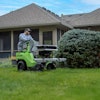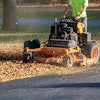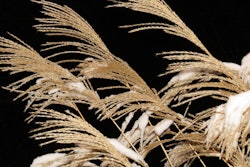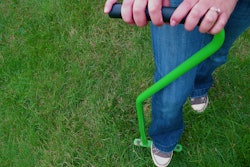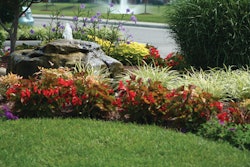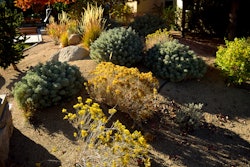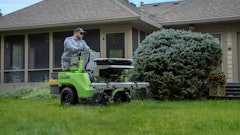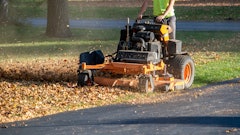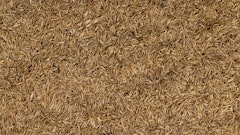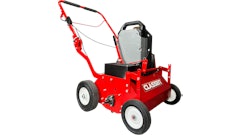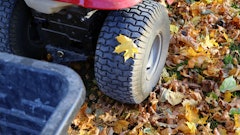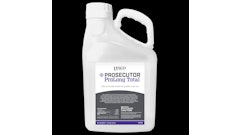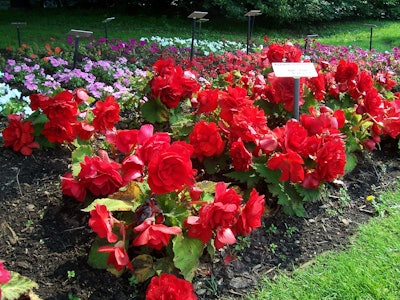
Don’t pull those annuals! When cleaning up the garden, either mow them down or prune them out. Allow the roots to remain in the ground to rot and leave behind nutrient-rich organic matter for next year’s crop. After the roots rot, they leave behind tunnels for the roots of next year’s crop to follow, penetrating deeper into the soil where there is more water and nutrients.
The best way to clean the garden is to set the cutting height of your lawn mower as high as possible, and mow down those dead and dying plants. Allowing dead stems to stick 3 or 4 inches above the ground helps trap leaves and other organic debris. The mower can also pulverize the organic matter, resulting in a natural mulch to protect the soil from erosion and from puddling, which is caused when large droplets of rain strike bare soil.
To further improve your soil, rake those extra leaves into your garden where they can decompose in place, and add both organic matter and nutrients to your soil. Don’t be a neat-nick in the garden. Farmers are quickly learning that allowing organic residue to remain in the soil—and eliminating plowing and discing—not only saves them money, but also results in more drought-resistant crops, less dependence on fertilizers and more productive soils.
Gardeners should also learn the importance of no-till agriculture. Yearly spading or rototilling destroys the soil structure, resulting in soils that are impervious to water, retain less moisture and demand greater use of fertilizers.
To read the full original article, please click here.

